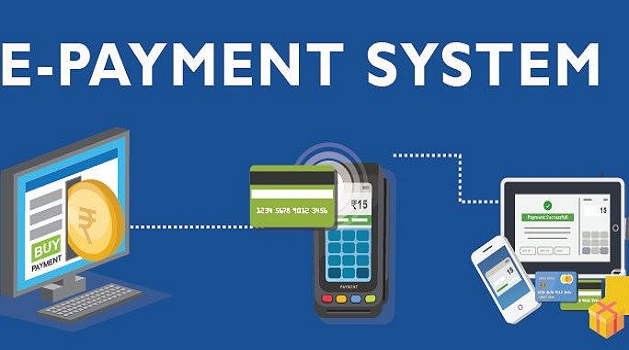E-Financial
Unified Payment Unveils PTSA Platform to Boost e-payment

Unified Payment Services Limited has said that its Payment Terminal Service Aggregator, PTSA, platform has commenced operations and will collaborate with stakeholders to facilitate growth of electronic payment transactions in the country.

Mr. Agada Apochi, group Managing Director, Unified Payment, stated this at a media briefing in Lagos on the commencement of PTSA services by the company.
Disclosing that Unified Payments became the second PTSA in the country following license by the Central Bank of Nigeria, CBN, Apochi, said, “As PTSA, our role in that space is not that of competition, we do not see ourselves as competitors. We see ourselves as enablers. Our PTSA platform is for everyone to collaborate and grow payment service in Nigeria.”
Speaking further, he explained, “As enabler we are going to help different industry operators and service providers to offer their services and solutions in compliance with the policy and regulations of the CBN. We will help the government through the CBN to have an oversight over transactions that happen at the PoS.
“We would be able also to help members of the public to manage different misconducts that as a country and as individuals we are unhappy about. That is our focus and in doing that we are collaborating with everyone and no exceptions.
“There are only two PTSA in Nigeria. Since obtaining the licence we have been talking to the other Aggregator to define areas of collaboration so that we work together and build a bigger ecosystem that is safer, more resilient, and meet the needs and aspirations of businesses that will be using our services.”
E-Financial
Verve Expands Payment Frontiers with Global Partnerships, Contactless Innovation

Verve, Africa’s domestic payment and token brand, has fortified its digital payments through a series of strategic partnerships and technological advancements.

The brand remains committed to providing seamless and secure transactions across a growing network of acceptance points.
As part of its global expansion, Verve has recently partnered with leading international and regional payment platforms, including Temu, AliExpress, PalmPay, and FortisPay. These integrations enhance Verve cardholders’ access to global e-commerce marketplaces and digital payment solutions, reinforcing the brand’s mission to facilitating easy transactions across borders.
Building on this momentum, Verve has also accelerated its adoption of contactless payment solutions, strengthening its presence across key fintech and payment service provider platforms, including Opay, PalmPay, Global Accelerex, Interswitch, and Paystack terminals. This development aligns with the growing demand for faster, more secure digital payment methods, benefiting both merchants and consumers.
Commenting on these milestones, Vincent Ogbunude, Managing Director, Verve International, stated: “At Verve, we remain committed to driving innovation in digital payments while ensuring our cardholders enjoy secure and hassle-free transactions. Our recent integrations with global e-commerce platforms and the growing acceptance of our contactless solutions reflect our dedication to advancing financial inclusion and enhancing payment experiences.”
With over 75 million Verve cards issued to date, the brand continues to expand its footprint across ATMs, PoS terminals, online, agency banking outlets, e-commerce platforms, and mobile applications.
As Verve consolidates its leadership in Africa’s payment ecosystem, it remains focused on delivering cutting-edge solutions that empower individuals and businesses to thrive in an increasingly digital economy.
E-Financial
Nigeria to Exit Grey List Soon – SEC

Nigeria may soon exit the Financial Action Task Force (FATF) grey list, Emomotimi Agama, director-general, Securities and Exchange Commission (SEC), has said.

Emomotimi Agama, DG, SEC
This is with the inclusion of digital assets regulation in the recently signed Investments and Securities Act (ISA) 2025.
Speaking in Abuja, Agama noted that the inclusion of digital assets in ISA 2025 provides the country with a strong platform to exit the grey list, as the new law aims to curb fraudulent activities in the digital space while fostering trust and innovation in blockchain technologies.
President Bola Ahmed Tinubu recently signed the ISA 2025 into law.
Nigeria was placed on the FATF grey list (indicating increased monitoring) on February 24, 2023, due to deficiencies in its anti-money laundering (AML) and counter-terrorism financing (CFT) regime.
According to Agama, “It may interest you to know that the AML/CFT issue is what brought about our inclusion in the grey list. The inclusion of this law today provides us an avenue to exit that grey list, and that is very critical to the international community. We are telling the world that Nigeria is open for business and committed to protecting all legitimate business operations within the country.”
He emphasized that trading in cryptocurrencies does not equate to a weaker naira, adding that the Commission will provide regulatory guidance to ensure activities in the space align with national interest.
“The SEC now has the power to clamp down on unregulated entities. We encourage everyone in this space to come under regulation, seek clearance, and obtain guidance.
“We are ready to provide the needed support to ensure national economic interests are protected. Clarity in the law will give market participants confidence and security,” he said.
Agama explained that the essence of regulation is to create protective boundaries around institutions, products, and individuals to prevent illegal practices.
He also highlighted collaboration with key agencies including the Central Bank of Nigeria (CBN), Economic and Financial Crimes Commission (EFCC), Nigeria Financial Intelligence Unit (NFIU), and the Office of the National Security Adviser.
“We are working collectively to ensure that this sector does not become inimical to Nigeria’s existence. Proper guidance is essential, especially because every investment – digital or traditional – carries risks. Managing that risk is our priority,” he said.
He further disclosed that the SEC is currently implementing moderated regulation, noting that it is not feasible to issue licenses to all applicants at once.
“We have two programmes: the Regulatory Incubation Programme and the Accelerated Incubation Programme. These are tools to evaluate the risks posed by institutions to the Nigerian economy and its citizens. We will release the next cohort in the coming quarter, after reviewing the progress of the previous cohorts,” he said.
To address regulatory challenges, Agama said the Commission is introducing risk management as a legal instrument to guide capital market operators and security issuers in mitigating future risks.
“This move will enhance investor confidence and protection. We have also strengthened Know Your Customer (KYC) processes through this risk management framework to distinguish genuine investors from those with malicious intent,” he added.
E-Financial
AfDB Mobilizes $2.2Bn to Support Nigeria’s Agriculture

African Development Bank (AfDB) is mobilising $2.2 billion to develop agricultural processing zones in 28 states in Nigeria to boost food security and create jobs, Akinwumi Adesina, the bank’s president said on Tuesday.

Adesina was speaking in northern Kaduna state while launching the first phase of the initiative that is targeting five states. This phase is being bankrolled by more than $500 million that was first announced in 2022.
The AfDB head said the funding needs for the second phase would be presented to the AfDB board shortly for approval.
“We have been able, I would like to say, to mobilize $2.2 billion of investment interest to support the second phase across Nigeria,” he said during the ceremony in Kaduna.
Adesina said besides the AfDB, Arab Bank for Economic Development, Africa Import-Export Bank, agri-investment fintech Sahara Farms and French and U.S. institutions were among institutions that would help raise the $2.2 billion.
The agro-processing zones aim to create facilities to process agricultural produce closer to farmers, which will reduce post-harvest losses and strengthen value chains from farms to market.
Last year, Nigeria spent $4.7 billion importing food, the AfDB said, a trend authorities also hope to reverse with more investment in the farming sector.

 E-Financial3 days ago
E-Financial3 days agoAfDB Mobilizes $2.2Bn to Support Nigeria’s Agriculture

 News3 days ago
News3 days agoMTN Pens Moving Tribute to Pascal Gabriel Dozie, Former Chairman

 E-Business3 days ago
E-Business3 days agoNatasha: TMG Demands Probe of Alleged Data Breach in Failed Recall

 General News3 days ago
General News3 days agoNIPOST Threatens Courier, Logistics Service Providers

 E-Business3 days ago
E-Business3 days agoCJN Warns Judicial Officials against Data Breaches, Cyber Attacks

 Broadcasting2 days ago
Broadcasting2 days agoStarlink, DStv, Others Pay “Peanuts” to Operate in Nigeria- Minister

 Telecom3 days ago
Telecom3 days agoNCC Issues 90 Days Deadline to Telcos to Resolve Subscribers’ Unclaimed Airtime

 News3 days ago
News3 days agoNIGCOMSAT, Jigawa State Empower 150 Youths on Satellite New Innovations





















